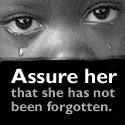One of the favorite activities of summertime (which is passing by so very rapidly) is book reading while relaxing on the beach. The latest book I’ve read, ‘The Mailbox ’ by Marybeth Whalen, is exactly perfect for that refreshing activity.
’ by Marybeth Whalen, is exactly perfect for that refreshing activity.
When Lindsey Adams first visits the Kindred Spirit mailbox at Sunset Beach, North Carolina, as a teenager, she has no idea that twenty years later she will still be visiting the mailbox – still pouring out her heart in letters that summarize the best and worst parts of her life.
Returning to Sunset for her first vacation since her husband left her and her two kids, Lindsey struggles to put her sorrow into words. Memories surface of her first love, Campbell Forrester – and the rejection that followed. When Campbell reappears in her life, Lindsey must decide whether to trust in love again or guard herself from greater pain.
Centered around the real and mysterious landmark on the coast of North Carolina, The Mailbox is a rich blend of folklore, faith, and the beauty of second chances.
is a rich blend of folklore, faith, and the beauty of second chances.
Here is the book trailer:
Here is the biography of the author:
Marybeth Whalen speaks regularly through her association with Proverbs 31 Ministries, and she served as the general editor of For the Write Reason and The Reason We Speak
and The Reason We Speak . She and her husband, Curt, have six children and are active in their community near Charlotte, North Carolina. She is passionate about sharing God with all the women God places in her path. She has been visiting the Kindred Spirit mailbox for years.
. She and her husband, Curt, have six children and are active in their community near Charlotte, North Carolina. She is passionate about sharing God with all the women God places in her path. She has been visiting the Kindred Spirit mailbox for years.
One engaging element of the story for me is the fact that Lindsey is a runner. I am just getting started in that endeavor, and am interested in hearing how people – and book characters! – relate to that activity. Here is Lindsey’s perspective:
She rummaged through her suitcase to find her running shoes, thick socks, shorts, T-shirt, and exercise bra, wondering how far she would be able to go. She had only recently gone back to running, discovering anew the freedom and energy she gained from making herself hit the pavement regularly. Two days after Grant [her husband] left, she decided to run instead of cry. The weight and sadness she felt in his absence were lodged inside her – like something caught that needed to be loosened – and she hoped that the running would shake it free. The first day she ran until she nearly fell down from exhaustion. Pushing herself through exercise yielded a better release, she discovered, than sobbing. When she returned home, the sadness hadn’t disappeared, but the weight she felt before she left had lessened considerably. She had missed only a few days since, craving her runs like chocolate. (p. 122)
I am not at the point of craving running more than chocolate (!!), but I hope to get to that point!
An interesting subplot was that Campbell’s daughter, Nikki, was battling anorexia. I battled that illness myself in my early 20s, so could relate to that particular character. I really felt for her, and for her family that had to deal with this frail young lady in a gentle and compassionate manner. Anorexia is a serious – and life-threatening illness, and it is always a good thing when attention is brought to it. So many people – young and old – suffer from it, and it is so misunderstood. It is so much more than just losing weight/keeping thin.
It was terrific to see how both Campbell and Lindsey – who had been on separate lifepaths – were following God. Here is Campbell’s prayer after Lindsey reappears in his life:
“Lord,” he said. “I wonder if You have brought Lindsey and me together for a reason. You know I have waited half my life to have a chance with her again. Please don’t let me blow it this time. You know there are things I need to say to her. Things she might not understand. Show me how to tell her how much I already love her, how I have wanted to be a part of her life for longer than she knows. Give me the words to say. I don’t know if I can handle losing her twice. Just please, please, please don’t let this be anything but the real thing.” Campbell finished his prayer by asking God to keep His hand on Nikki. He didn’t want to forget his daughter in the rush of his anticipation about Lindsey. Nikki had to remain his priority. (p. 193)
I also loved the great advice Campbell’s mother LaRue gave him:
“You’re getting some pretty significant chances this summer, Son. Don’t shy away from the opportunities you’ve been given.”
“But what if I don’t deserve what I’ve been given?” he asked, turning to look at his mother in the dimly lit room.
She smiled again, her mouth barely turned up at the edges. “Honey, none of us get what we deserve. That’s why they call it grace.” (p. 221)
I have to be honest and admit that I was a little leery after discovering the secret that Lindsey discovered about Campbell (I consider it to be a spoiler; you’ll have to read the book to see what I mean…). I am not sure that I would be so trusting of him after learning what he did. Perhaps she is just more gracious – and more trusting – that I would have been in similar circumstances. God did use it for good (as Romans 8:28 tells us He does) – but I think I would have been a little more cautious than Lindsey was.
Marybeth certainly did make Sunset Beach, North Carolina sound very inviting! Although I am more of a mountaineer than a beach bum, Marybeth’s portrayal of the area made me long to explore that part of the country!
I was intrigued by the concept of the Kindred Spirit Mailbox, which actually exists at the real Sunset Beach! Although I am not as romantic as I should be (especially as a female!), I still think it is a sweet concept! Marybeth even includes in the book directions for how to locate the magical and mystical mailbox!
Overall, I found this debut novel by Mrs. Whalen to be impressive. And it is a terrific beach/summer read – particularly since it is mainly based in a beach setting! I think it would be a terrific ‘chick flick’ movie; it reminded me a lot of a Nicholas Sparks book/movie.
You can order this book here .
.
This book was published by David C. Cook and provided by The B & B Media Group for review and giveaway purposes.
_____________________________________________________________
I have a copy of this book that I would love to send along to one winner!
that I would love to send along to one winner!
There are several ways to gain entry:
1) Leave a comment here on the blog, telling me what in particular intrigues you about this particular book. Please make sure to leave your email address in this format – sample[at]gmail[dot]com.
2) Follow me on Twitter; I will more than likely follow you back! If you are already a Twitter follower, that counts, too! Please leave a new comment to that effect.
3) Follow me as a Google Friend on this blog; if you are already a Friend, that counts, too! Please leave a new comment to that effect.
4) Become my Facebook friend. Please leave a new comment to that effect.
5) Follow this blog as a NetWorked Blog Follower after you’ve become my Facebook friend. Please leave a new comment to that effect.
So there are five chances to enter! Please limit one entry per option.
This giveaway is for U.S. residents only. The deadline for entry is Monday, August 23, 2010 at 11:59 p.m. EST. A winner will be chosen via the Random Number Generator on Tuesday, August 24, 2010 and will be contacted via email. The best to all of you!





















.jpg)

